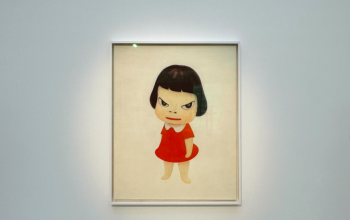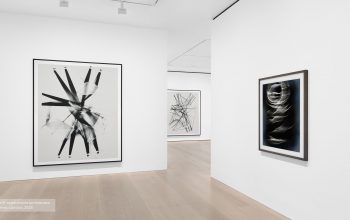legendary cultural elements from the street by Tsang Tsou Choi
During the Art Basel Hong Kong 2022, Tsang Tsou Choi’s works are going to be presented once again by Lucie Chang Fine Arts from a brand new angle.
曾灶财(November 12, 1921 – July 15, 2007, Tsang Tsou Choi / used name: Zeng Cai), known by his self-titled “Kowloon Emperor”, is a street graffiti artist in Hong Kong. He is the first Hong Kong artist to be invited to exhibit at the Venice Biennale (2003). His Graffiti creations are all Chinese characters written with a brush. His works tell about the past deeds of himself and his family, as well as declaring his love over Kowloon. His handwriting can be seen in various districts in Kowloon, including Kwun Tong, Tsim Sha Tsui Star Ferry Pier, Ping Shek Village, Tsui Ping Village as well as Central and Western District on Hong Kong Island outside Kowloon.
When Tsang Tsou Choi was sorting out the relics of his ancestors, he found that before part of the land in Kowloon (Kowloon City) was ceded to the United Kingdom, he had been given the imperial confinement (fiefdom) for his ancestors. After Hong Kong became a British possession, they were no longer the landlords of Kowloon. He then began to file complaints everywhere with his handwriting notice, often graffiti “declaring privately owned land” near his home.
To examine his creations, in addition to the mysterious Kowloon story, what is more fascinating is the unique style and innate creative enthusiasm displayed in his calligraphy-based graffiti works. Breaking the classy style of calligraphy creation, these art works jumped out of the confinement within the community of literati and writers. The fact that the works on the streets can be preserved to this day is due to his superb artistic expression, which makes these unconventional street announcements perfectly fit the street temperament.
In the past 20 years, the outstanding temperament of his graffiti works has made great impact on commercial films, advertising designs, and trendy brand concepts in Asia. Taking over that,
“the king is dead, long live the king”.


